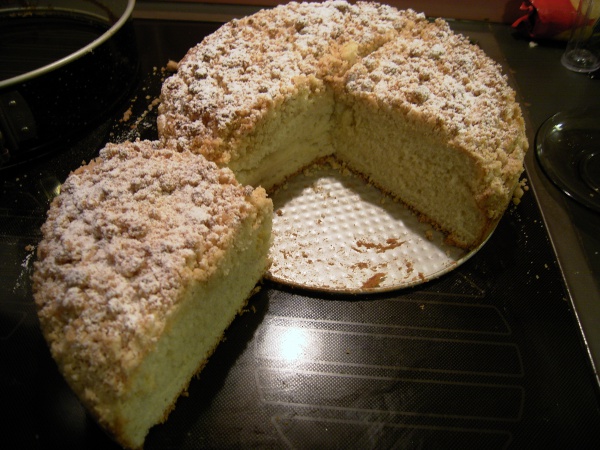Facts About Kuchen
"Kuchen" which translates to "cake" in German, encompasses a broad array of both sweet and savory desserts, pastries, and cakes. Made with straightforward ingredients like eggs, flour, sugar, and sometimes fat, Kuchen is a cherished tradition in Germany, often enjoyed alongside a cup of coffee. The term "Kuchen" is quite inclusive and can refer to various types of desserts. This differs from "Torte" which typically denotes a cake that is decorated or layered with cream or fruit fillings.
Some popular types of Kuchen include:
- Obstkuchen: Fruit cake
- Kuchenrolle: Cake roll
- Marmorkuchen: Marble cake
- Käsekuchen: Cheesecake
- Pfannkuchen: Pancake
- Blechkuchen: Sheet cake
There are also savory versions known as "Pikante Kuchen."
Jewish variations of Kuchen include:
- Lekach: Honey cake
- Rugelach: Rolled pastry with nuts and raisins
- Mandelbrot: Almond-based pastry
These desserts have evolved over time, especially as ingredients became more accessible. Kuchen recipes are often family treasures, handed down through generations, particularly in regions with strong German heritage such as the United States, Chile, and Brazil.
In South Dakota, Kuchen was designated the state dessert in 2000, underscoring its popularity among German settlers in the area. The influence of Kuchen can even be seen in French quiche, which was inspired by the savory versions of German Kuchen.

 Peru
Peru